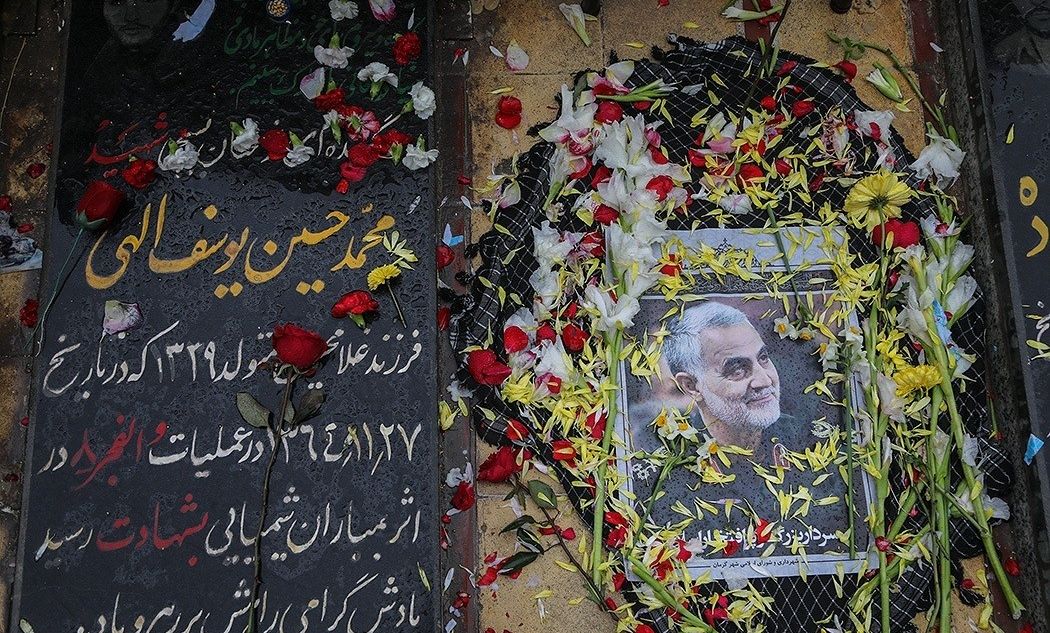UPDATE (Jan. 4 at 12:47 p.m.): ISIS claimed responsibility Thursday for the attack in Kerman, saying in a press release that two of its suicide bombers carried out the attack. The group has long been a bitter enemy of Iran, whose government adheres to Shia Islam, which ISIS considers an apostasy. In a subsequent statement, the group contended that Iran's primary goal today is to use Palestinian factions to fight Israel without having to put Iranian soldiers in harm's way.
A pair of explosions tore through a crowd of Iranians marking the fourth anniversary of the death of Gen. Qassem Soleimani Wednesday, killing at least 100 people and injuring many others.
The Iranian government described the explosions as a terrorist attack but did not immediately accuse any group of carrying it out. The attack took place during a procession near Soleimani’s gravesite in the southeastern city of Kerman.
Observers immediately pointed to Israel as a possible culprit given its bitter rivalry with Iran and its willingness to attack outside of its borders. But, as AP News noted, such a move would signal a major departure from previous Israeli attacks in Iran, which usually targeted specific officials and caused far fewer casualties than today’s blast.
Another potential attacker is ISIS, which has carried out similar attacks in the past but has not previously struck Kerman, according to AP News.
Iran’s judiciary head said the “agents and perpetrators of this grievous crime will undoubtedly be punished,” adding that he expects officials to track down the attackers and bring them before the courts.
The unprecedented attack comes just hours before the leader of Hezbollah, a Lebanese militant group that works closely with Tehran, is set to give a speech marking the anniversary of Soleimani’s 2020 killing by U.S. forces in Iraq. The Iranian general had previously served as Tehran’s primary point of contact with Hezbollah as well as Iraqi militia groups.
Analysts are anxiously waiting to see how Hezbollah leader Hassan Nasrallah will address Israel’s alleged assassination of a Hamas commander with ties to Hezbollah and Iran in Beirut on Tuesday, which marked the Israel Defense Forces’ first attack in central Lebanon in several years. While most experts say Nasrallah hopes to avoid a full-scale war with Israel, news of a highly symbolic potential Israeli attack in Iran could change that calculus.
“This is a very dangerous moment,” argued Trita Parsi of the Quincy Institute, which publishes RS. “A region-wide war appears more likely by the day.”
If Israel is indeed behind the attack then Iran may feel forced to respond directly, a move that Tehran has carefully avoided so far.
“[A]s Israel's attacks continue, Tehran's long-game strategy is coming under increasing strain as more voices in Iran argue that the absence of a strong response undermines Iran's deterrence,” Parsi wrote on X, formerly known as Twitter.
Iranian media has so far reported that the pair of bombs were placed in two suitcases that may have been detonated remotely. A witness told Al Jazeera that one explosion came from a trash can.
The U.S. has not yet commented on the attack in Kerman. The Biden administration has generally avoided weighing in on previous attacks alleged to have been carried out by Israel, including a recent strike that killed an Iranian commander in Syria.
Turkish President Recep Tayyip Erdogan said Turkey is “deeply saddened” by the “heinous terrorist attacks” and extended his condolences to the Iranian people.
On Wednesday, Israel continued to strike targets in southern Lebanon, the traditional stronghold of Hezbollah, as Hezbollah pledged to respond to the Tuesday attack in Beirut. Spillover from the Gaza war also continued in the Red Sea, where a string of Houthi attacks on merchant ships has forced many cargo vessels to go around Africa instead of transiting the Suez Canal.
- Did Israel kill Iranian commander to provoke a wider war? ›
- Iran’s political factions aren't united on Hamas, or the Middle East ›
















